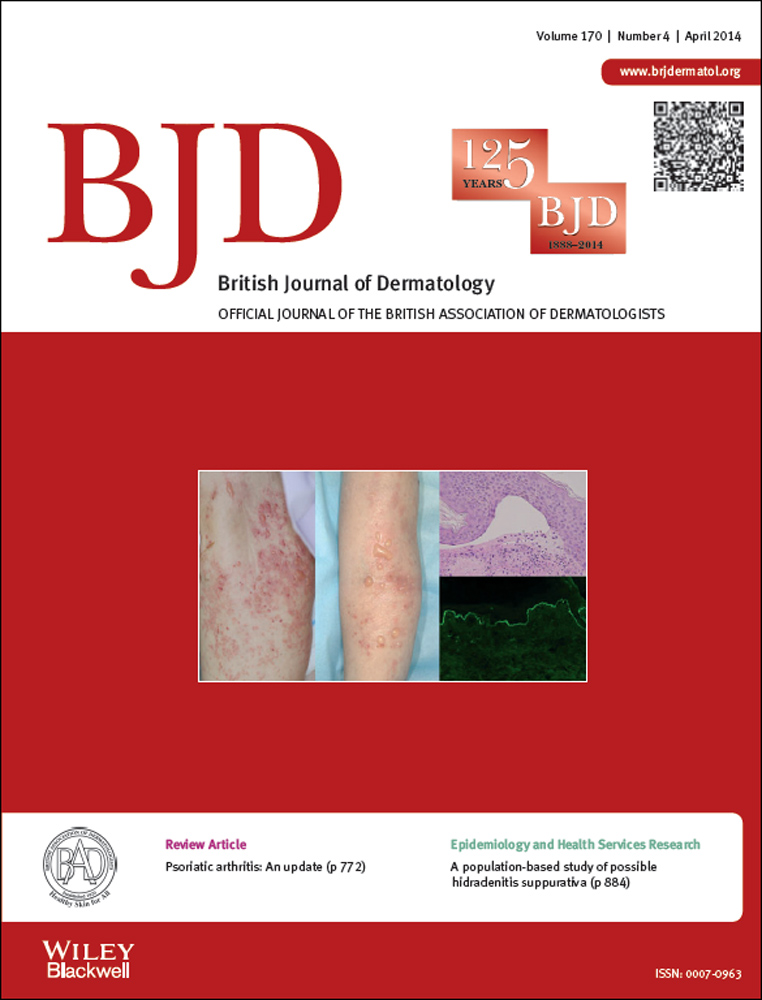Beta-blocker usage after malignant melanoma diagnosis and survival: a population-based nested case–control study
Summary
Background
Beta-blockers have potential antiangiogenic and antimigratory activity. Studies have demonstrated a survival benefit in patients with malignant melanoma treated with beta-blockers.
Objectives
To investigate the association between postdiagnostic beta-blocker usage and risk of melanoma-specific mortality in a population-based cohort of patients with malignant melanoma.
Methods
Patients with incident malignant melanoma diagnosed between 1998 and 2010 were identified within the U.K. Clinical Practice Research Datalink and confirmed using cancer registry data. Patients with malignant melanoma with a melanoma-specific death (cases) recorded by the Office of National Statistics were matched on year of diagnosis, age and sex to four malignant melanoma controls (who lived at least as long after diagnosis as their matched case). A nested case–control approach was used to investigate the association between postdiagnostic beta-blocker usage and melanoma-specific death and all-cause mortality. Conditional logistic regression was applied to generate odds ratios (ORs) and 95% confidence intervals (CIs) for beta-blocker use determined from general practitioner prescribing.
Results
Beta-blocker medications were prescribed after malignant melanoma diagnosis to 20·2% of 242 patients who died from malignant melanoma (cases) and 20·3% of 886 matched controls. Consequently, there was no association between beta-blocker use postdiagnosis and cancer-specific death (OR 0·99, 95% CI 0·68–1·42), which did not markedly alter after adjustment for confounders including stage (OR 0·87, 95% CI 0·56–1·34). No significant associations were detected for individual beta-blocker types, by defined daily doses of use or for all-cause mortality.
Conclusions
Contrary to some previous studies, beta-blocker use after malignant melanoma diagnosis was not associated with reduced risk of death from melanoma in this U.K. population-based study.




